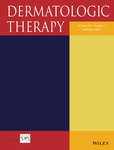Long-term efficacy and safety of ustekinumab for moderate-to-severe psoriasis: A 9-year real-life experience from a tertiary referral center in Turkey
Abstract
There is a paucity of data on long-term (≥5-year) outcomes of ustekinumab therapy for psoriasis in real-life clinical practice. This observational, retrospective study aimed to evaluate the long-term efficacy and safety profile of ustekinumab in 52 adult patients with moderate-to-severe chronic plaque psoriasis who were treated with ustekinumab for at least 28 weeks and a maximum of 105 months in our tertiary referral center in Turkey, between 2010 and 2019. Response to therapy was assessed using Psoriasis Area and Severity Index (PASI). Logistic regression analysis was performed to determine significant associations (p-value <0.05) with response to treatment. The PASI50, PASI75, PASI90, and PASI100 response rates were 97.8%, 88.9%, 53.3%, and 35.5%, respectively, at year 1 and 100%, 80.0%, 60.0%, and 40.0%, respectively, at year 5. Non-obesity was independently associated with PASI90 response at year 2 (p = 0.043), while biologic-naivety was independently associated with PASI90 responses at year 2 (p = 0.047) and year 3 (p = 0.021). An absolute PASI score of ≤3 was achieved by 82.2% and 80.0% of the patients at year 1 and year 5, respectively. Nine patients received adjuvant therapy and nine underwent ustekinumab dose escalation. These strategies were effective for recapturing clinical response in most patients. Ustekinumab was generally well-tolerated with no dose-related and cumulative toxicity, or drug interaction over a mean of 33.5 ± 21.1 months. The main reasons for discontinuation were secondary failure and loss to follow-up. Our 9-year real-life clinical experience demonstrates that ustekinumab is an efficacious and safe treatment option for long-term therapy of moderate-to-severe plaque psoriasis.
CONFLICT OF INTEREST
The authors declare no potential conflict of interest.
Open Research
DATA AVAILABILITY STATEMENT
The data that support the findings of this study are available from the corresponding author upon reasonable request.




